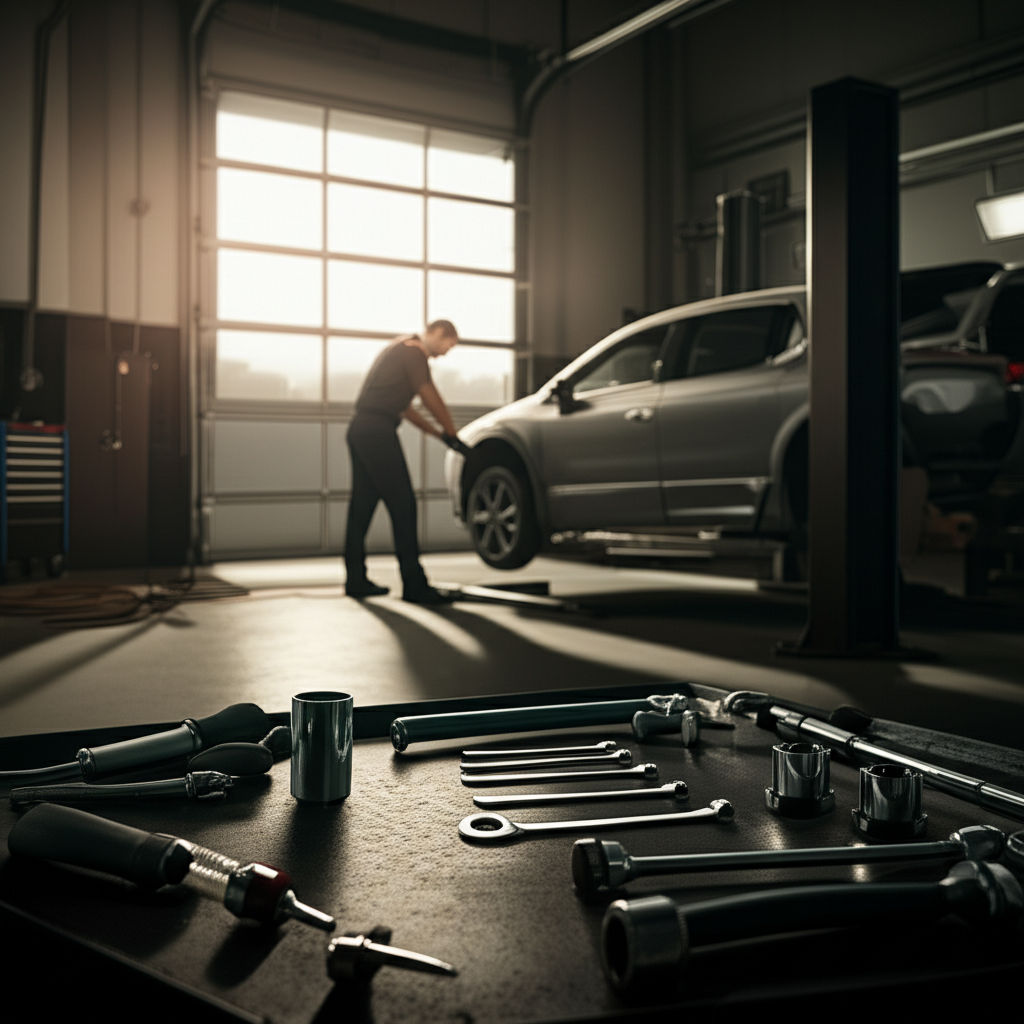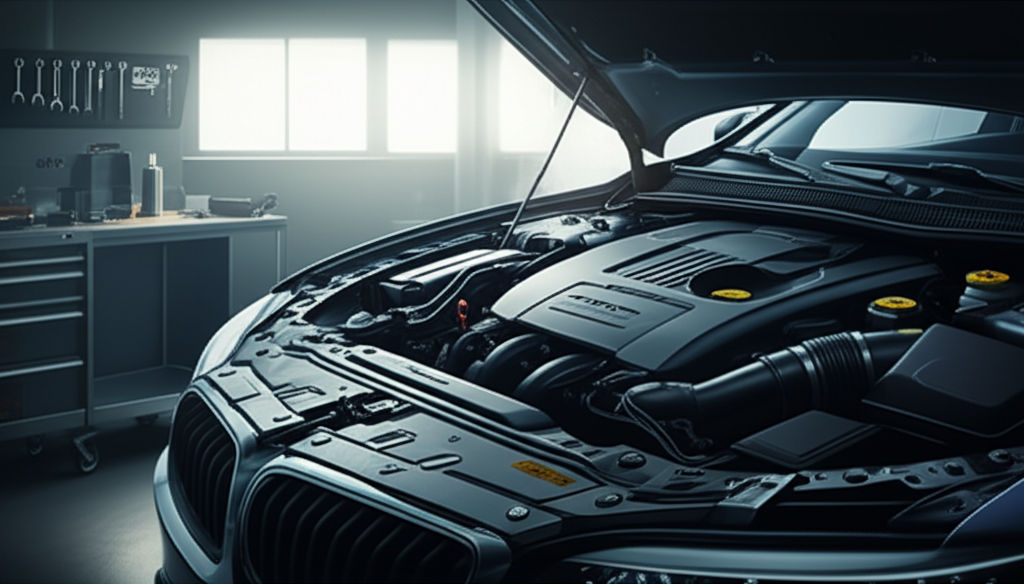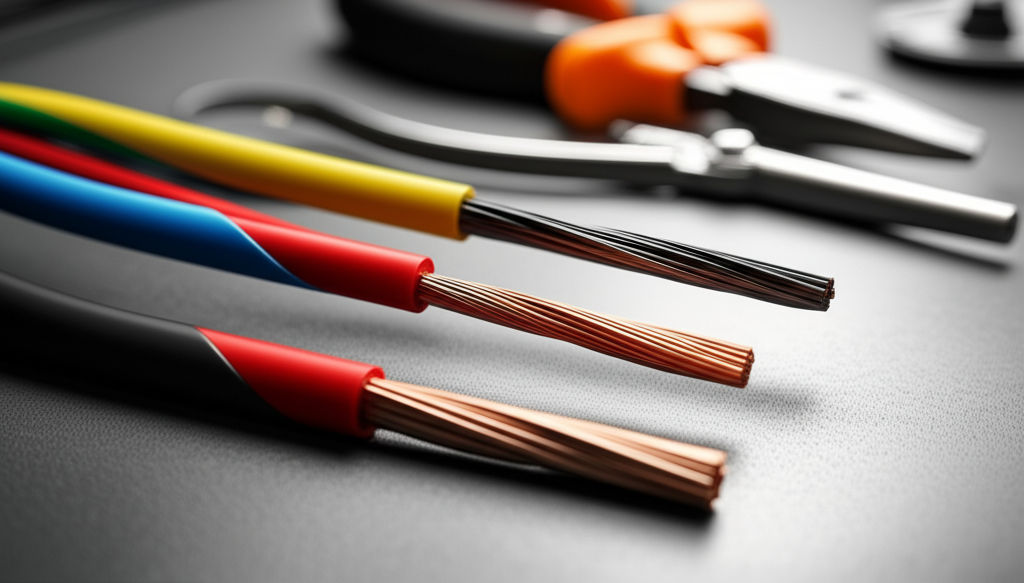Brake Maintenance Tips: When to Replace & Repair
Ellie Moore

Photo: Brake Maintenance Tips: When to Replace & Repair
Brake Maintenance Tips: When to Replace & Repair
When it comes to car maintenance, few components are as crucial as your brakes. They are your first line of defense, ensuring safety on the road. Yet, many drivers overlook the importance of regular brake maintenance, leading to costly repairs or worse, dangerous driving conditions. In this comprehensive guide, we’ll cover everything you need to know about brake maintenance, including when to replace and repair your brakes, actionable tips to extend their lifespan, and signs that indicate something’s wrong.
Why Brake Maintenance Matters
Your car’s brake system ensures your safety, passengers' safety, and the safety of others on the road. Poorly maintained brakes can lead to accidents, increased stopping distances, and higher repair bills. Keeping them in top shape not only gives you peace of mind but also improves your vehicle’s overall performance.
How Brakes Work: A Quick Overview
Before diving into maintenance tips, let’s briefly understand how brakes function. Most vehicles use a hydraulic braking system that includes:
- Brake Pads and Rotors: The pads press against the rotors to create friction, slowing the vehicle.
- Brake Calipers: These hold the brake pads and force them against the rotors when you apply the brakes.
- Brake Fluid: A hydraulic fluid that transfers force from your pedal to the braking mechanism.
- Drum Brakes (in some cars): Instead of rotors, some systems use drums and shoes.
Regular wear and tear affect these components differently, making timely checks and replacements essential.
Signs Your Brakes Need Attention
Recognizing the early warning signs of brake issues can save you time and money. Look out for:
- Squeaking or Squealing Sounds: Often caused by worn brake pads.
- Grinding Noise: This could mean your brake pads are completely worn, and the metal is rubbing against the rotor.
- Vibrations When Braking: Indicates warped rotors or uneven wear.
- Spongy Brake Pedal: A sign of air in the brake lines or low brake fluid.
- Longer Stopping Distances: A clear indicator of brake inefficiency.
- Burning Smell: Overheated brakes can emit a sharp odor, especially after heavy use.
- Dashboard Warning Light: Many modern cars alert you when brake components need attention.
If you notice any of these signs, don’t delay schedule a professional inspection immediately.
Brake Maintenance Tips to Extend Lifespan
Taking proactive measures can significantly extend the life of your brake system. Here’s how:
1. Inspect Brake Pads Regularly
- Why: Worn brake pads can damage rotors, leading to more expensive repairs.
- How: Check them during routine tire rotations or oil changes.
- Tip: Replace pads when they’re below 3mm thick.
2. Flush Brake Fluid
- Why: Old fluid can absorb moisture, reducing braking efficiency.
- How Often: Every 2-3 years or as recommended by your car’s manual.
- Tip: Look for dark or cloudy brake fluid as a sign it’s time to flush.
3. Avoid Hard Braking
- Why: Sudden stops generate excessive heat, wearing down components faster.
- How: Maintain a safe following distance to reduce the need for abrupt braking.
- Tip: Use engine braking on steep declines to ease the load on your brakes.
4. Check Brake Rotors
- Why: Warped or damaged rotors can compromise braking performance.
- How: Listen for unusual noises or feel for vibrations while braking.
- Tip: Resurface or replace rotors as needed.
5. Monitor Brake Lines
- Why: Leaks in the hydraulic system can lead to brake failure.
- How: Inspect for wet spots or puddles near your tires.
- Tip: Use only manufacturer-recommended brake fluid to prevent damage.
When to Repair or Replace Brakes
Understanding when to repair versus replace is critical for both safety and budget management.
Repair:
- Minor Issues: Squeaky brakes caused by dust or glazing on pads.
- Rotor Resurfacing: When rotors are slightly uneven but still within safe thickness limits.
- Brake Fluid Refill: When levels are low due to natural use.
Replace:
- Worn Brake Pads: Replace them every 30,000-70,000 miles, depending on your driving habits and pad type.
- Warped Rotors: If resurfacing isn’t possible, replacement is the only option.
- Leaking Brake Lines: Replace immediately to avoid catastrophic failure.
DIY vs. Professional Brake Maintenance
While some brake maintenance tasks can be handled at home, others require professional expertise. Here’s a breakdown:
DIY Tasks:
- Checking brake fluid levels.
- Inspecting brake pads for wear.
- Cleaning dusty components with brake cleaner.
Leave to Professionals:
- Bleeding brake lines.
- Resurfacing or replacing rotors.
- Diagnosing complex brake issues.
Investing in professional help ensures your brakes are serviced to manufacturer standards, preserving safety and performance.
FAQs About Brake Maintenance
1. How often should I check my brakes?
Inspect your brakes every 6 months or during regular vehicle servicing.
2. What is the average cost of brake repairs?
Costs vary but typically range from $100-$300 for pads and $150-$500 for rotors per axle.
3. Can I drive with worn brakes?
Driving with worn brakes is dangerous and can lead to accidents or more costly repairs.
4. Are ceramic brake pads better than metallic ones?
Ceramic pads last longer and produce less dust, but metallic pads provide better performance for heavy-duty or high-speed driving.
Conclusion: Don’t Compromise on Safety
Brake maintenance is a critical aspect of car ownership that shouldn’t be overlooked. By staying vigilant, addressing issues early, and following the tips in this guide, you can extend the life of your brakes and ensure a safer driving experience.
Call-to-Action: Have questions about brake maintenance or need expert advice? Leave a comment below or share this article with fellow drivers to spread awareness. For more car care tips, explore our related guides!
Finance & Investment
View All
December 27, 2024
Master Startup Strategies in 2024Explore top startup strategies to stay ahead in 2024. Learn expert insights to boost your business.
Ellie Moore

May 3, 2025
Nissan Finance Phone SupportUnlock online visibility & growth with expert SEO content. Blend technical optimization with valuable, user-centric writing that truly helps your audience.
Ellie Moore

June 10, 2025
Car Finance Calculator for Smart BuyersMaster expert SEO content! Go beyond keywords to build trust, authority & value. Learn how E-E-A-T & Google's updates demand people-first content.
Ellie Moore

November 23, 2024
7 Ways to Prepare Financially for a RecessionRecession-proof your finances with these 7 essential strategies! Learn how to prepare for economic downturns, protect your assets, and navigate financial challenges. Start building resilience today!
Ellie Moore

November 24, 2025
Car Finance Calculator OnlineGo beyond keywords! Learn to create expert SEO content that leverages E-E-A-T, builds trust, drives rankings, and establishes your brand as an authority online.
Ellie Moore

January 1, 2025
Security Finance Login Help GuideBoost rankings & build trust with expert SEO content. Learn how E-E-A-T (Experience, Expertise, Authoritativeness, Trustworthiness) drives audience value & succ...
Ellie Moore
Insurance
View AllDon't risk your business. Our guide helps you identify, evaluate, and secure robust Essential Insurance and Companies to protect assets & ensure stability.
Ellie Moore
Safeguard your future with Ultimate Liberty Mutual Insurance. Discover robust coverage, financial protection, and expert risk mitigation for total peace of mind...
Ellie Moore
Secure your future with Complete Progressive Insurance Protection. Get unrivaled coverage, optimize rates, and achieve peace of mind against risks.
Ellie Moore
Remote work brings new risks—find out what insurance coverage digital nomads and remote workers need in a changing world.
Ellie Moore
Explore emerging trends reshaping insurance in 2025. Stay ahead with insights on AI, blockchain, and coverage innovations.
Ellie Moore
Essential Travel Insurance Plans: Navigate coverage, costs, compliance, and tech. Secure your trip with insights for policyholders, agents, & risk managers.
Ellie Moore
Education
View AllOutdoor learning promotes cognitive and social growth. Explore how nature-based education enhances learning outcomes and student well-being.
Read MoreSocial skills training is key for kids with autism. Learn practical strategies to improve social interaction and communication in children with ASD.
Read MoreUnschooling is redefining education. Learn how this self-directed approach works and why more families are embracing it as an alternative to traditional schooling.
Read MoreShould smartphones be allowed in classrooms? Explore the pros and cons of using smartphones in education and their impact on learning.
Read MoreExplore the ongoing debate on standardized testing. Learn its pros, cons, and whether it should remain a key part of education.
Read MoreOnline homeschooling communities are growing fast. Explore how they provide support, resources, and a sense of belonging to families worldwide.
Read MorePopular Post 🔥
View All
1
2
3
4
5
6
7
8
9
10
Health






Automotive
View All
August 26, 2025
Kevins Automotive Repair That Goes The Extra Mile
Discover Kevin's Automotive Repair: where trust, transparency, and exceptional service go the extra mile for your vehicle's health and longevity.

July 26, 2025
Five Star Automotive Service Reviews And Ratings
Discover why 5-star auto service reviews are crucial. They build trust, guide consumer decisions, and drive growth for top-tier repair shops.

July 16, 2025
CJ Automotive Services That You Can Trust
Need reliable auto repair? CJ Automotive Services builds trust with expert technicians, transparent service, and a commitment to your satisfaction.

July 13, 2025
Driven Automotive Success Stories You Should Know
Explore compelling automotive success stories! Learn how Ford, GM, and others overcame challenges with resilience and innovation to redefine mobility.

February 12, 2025
Top Compact Cars Perfect for City Living
Find the best compact cars for city living. Discover fuel-efficient, space-saving models that are perfect for navigating urban streets.

July 24, 2025
How To Choose The Best Automotive Wire For Repairs
Choose the right automotive wire for safe, lasting repairs. Our guide demystifies gauges, insulation & more for reliable vehicle electrical systems.

















